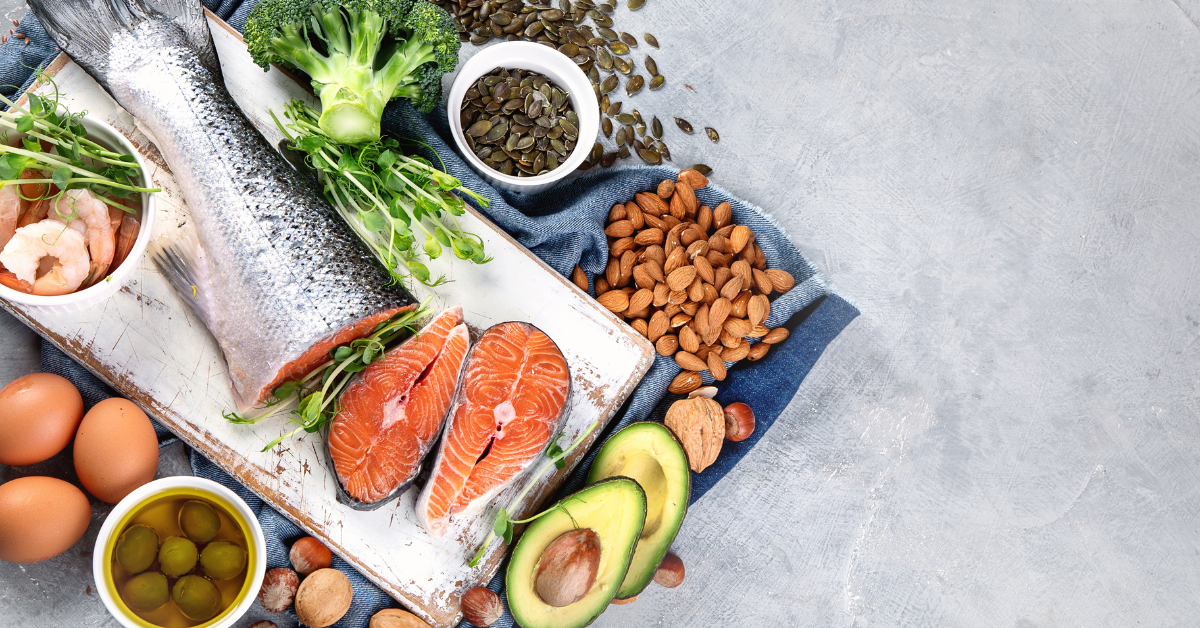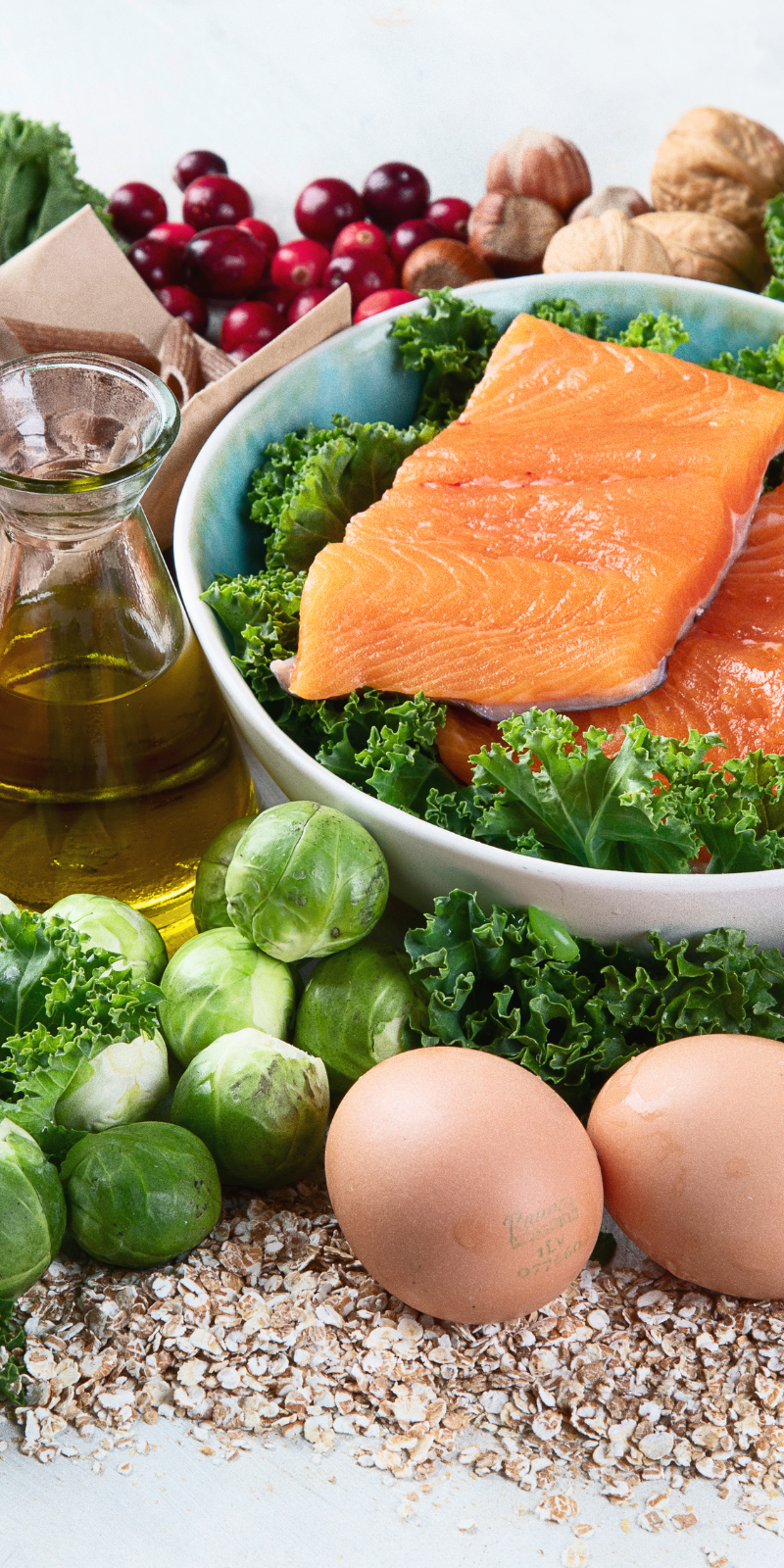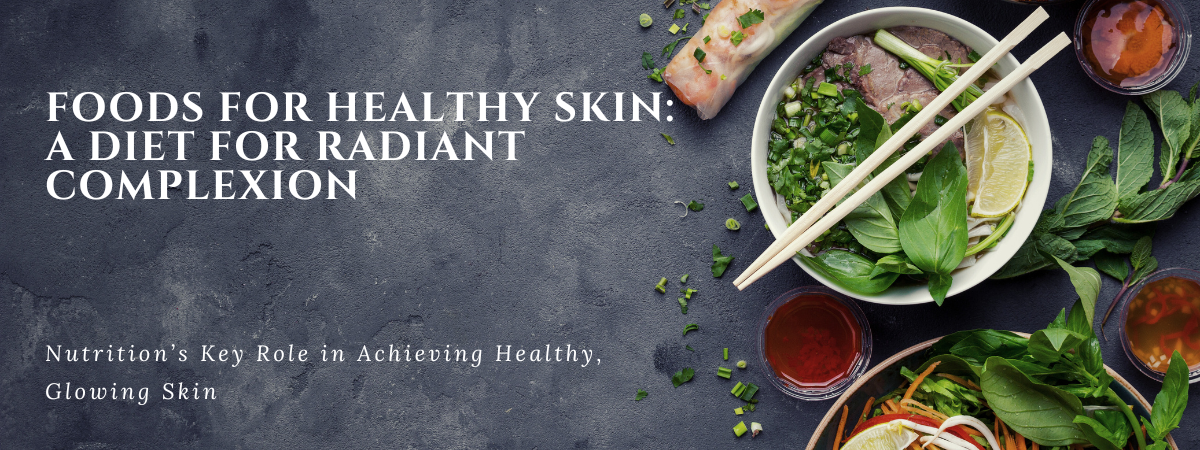
Gunja Parikh, MS, RDN, LDN
Maintaining vibrant, healthy skin goes beyond topical treatments; nutrition for skin plays a vital role. Recent studies have highlighted the impact of specific foods on skin health, showcasing their ability to support skin hydration, elasticity, and a youthful appearance. What we eat can either help or harm our skin. Choosing the right nutrients can promote skin repair, protect against damage, and enhance overall glow.
Fatty Fish and Omega-3s
Fatty fish like salmon, mackerel, and sardines are rich in omega-3 fatty acids, essential for maintaining the skin’s lipid barrier. A 2023 review published in Nutrients found that omega-3s help reduce skin inflammation, a key factor in acne and redness (1). These healthy fats also contribute to skin hydration, preventing dry skin and flakiness.
Colorful Fruits and Vegetables

Antioxidants are critical for combatting free radical damage and UV damage, and colorful produce is a top source. A 2022 study in the Journal of Dermatological Science emphasized the role of carotenoids, found in carrots, sweet potatoes, and spinach, in protecting sensitive skin from UV damage and enhancing its natural glow (2). Similarly, vitamin C in citrus fruits, strawberries, and bell peppers boost collagen production, which is critical for skin elasticity.


Green Tea for Skin Protection
Green tea, loaded with polyphenols, has emerged as a powerhouse for skin health. A 2023 clinical trial in Skin Pharmacology and Physiology demonstrated that daily consumption of green tea improved skin texture and reduced redness due to its anti-inflammatory and photoprotective properties (3); making it a great addition to any natural skincare routine.
Nuts and Seeds for Skin Repair
Almonds, walnuts, and sunflower seeds are rich in vitamin E, an antioxidant essential for protecting skin cells from oxidative damage. A recent study in Advances in Nutrition reported that vitamin E works synergistically with vitamin C to repair damaged skin tissues, helping reduce wrinkles and promote a youthful complexion (4).
Whole Foods First
The key to radiant skin lies in a balanced diet for skin rich in whole foods. Gravalese advises, “Processed foods with high sugar content can cause glycation, damaging collagen and elastin. Prioritize nutrient-dense options for lasting skin benefits.”
Incorporating these skin-friendly foods can enhance natural beauty while promoting overall health. Consult with a dietitian for a personalized skincare nutrition plan that works for your unique skin type.

Gunja Parikh
MS, RD, LDN
Gunja is a Licensed and Registered Dietitian with a passion for helping individuals improve their eating habits to reach their nutrition goals… READ MORE
References
- Krämer, S., Schwind, S., & Hoffmann, K. (2023). Deficit of Omega-3 Fatty Acids in Acne Patients—A Cross-Sectional Pilot Study in a German Cohort. Nutrients, 15(15), 3448.
- El-Kafrawy, S. F., & El-Beshbishy, H. A. (2022). A Scoping Review on the Effects of Carotenoids and Flavonoids on Skin Damage Due to Ultraviolet Radiation. Journal of Dermatological Science, 106(2), 182-191. doi:10.1016/j.jdermsci.2022.04.005
- Megow, K., & Krutmann, J. (2023). Efficacy and Safety of Oral Green Tea Preparations in Skin Ailments: A Systematic Review of Clinical Studies. Journal of Clinical Medicine, 12(13), 4005. doi:10.3390/jcm12134005
- Pinnell, S. R. (2015). The Roles of Vitamin C in Skin Health. Advances in Nutrition, 6(6), 647–656. doi:10.3945/an.115.007791

